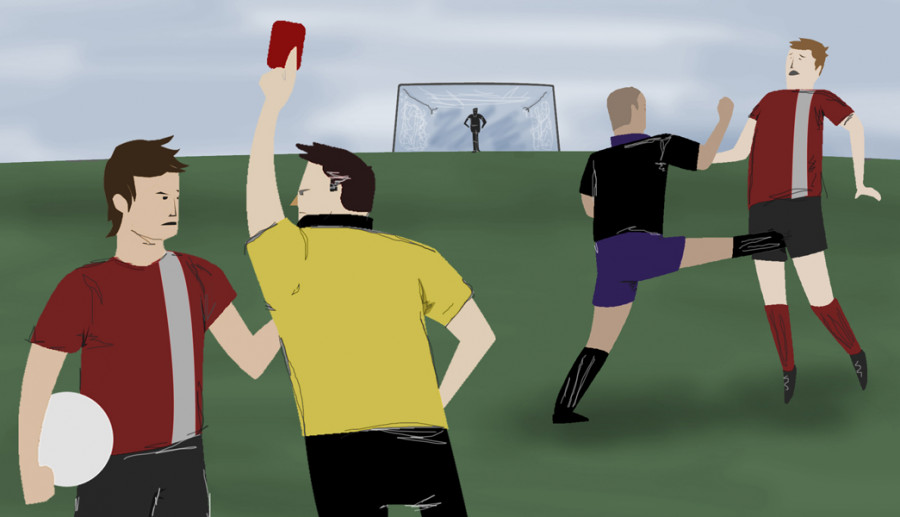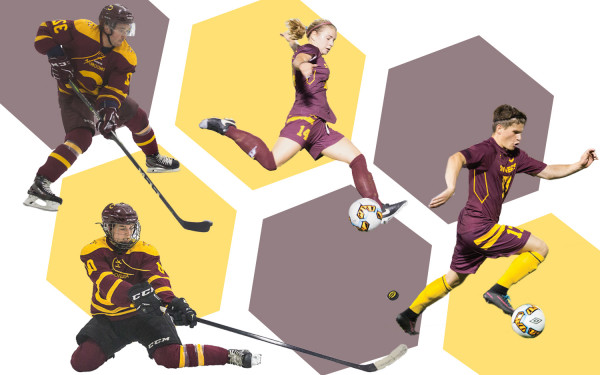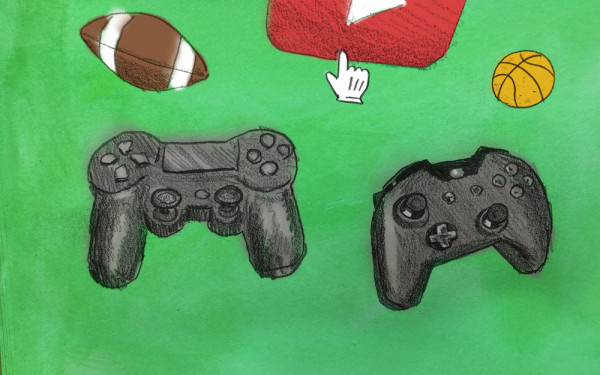Two Minutes for Reffing: Unofficials Calling Intramurals Games
Concordia’s intramural sports leagues may be lacking trained refs for students, despite the university charging up to $240 in fees for many sports at Loyola campus.
Whereas referee training for ice hockey is mandatory, officials for sports like intramural basketball and soccer aren’t offered similar refereeing clinics by the university—and it’s a fact that’s felt on the field.
“The refs often change the rules,” said long-time intramural soccer player Mike Kairouz. “They invent rules, change them and it’s never really clear how it goes.”
This can be said for the outdoor and dome soccer leagues, as some don’t have the proper experience, though Concordia’s athletic director Katie Sheahan said a lot do.
“Well over 80 per cent of referees are indeed certified with FIFA,” said Sheahan. Yet not all of them are, because prior experience isn’t necessary to become an official.
Campus recreation coordinator Ray Kirkwood justifies this lack of experience, saying familiarization of the sport is key, and thus soccer officials don’t need training, though it would apparently only cost Concordia a small sum to hire someone to train potential refs.
“The first criteria is that the people that are hired need have at minimum an extensive knowledge in the sport,” said Kirkwood. “If the officials have an experienced background, are familiar with the rules, have officiated in the past, then typically there may not be a clinic given.”
The same goes for basketball. “Their training is based on experience,” said basketball coordinator Decee Krah. “These guys play the game, so they know the game pretty well,” said Krah, referring to James Clark and Christian Kondo, two intramural basketball refs who have played alongside him with the Stingers.
“We’re trying to not only have people that have [a] knowledge of the sport at a high level, but we also try where we can to insure that we can have students employed as well,” said Sheahan.
Currently officials make $25 an hour for a period of four to eight hours a week of reffing.
And while these officials are familiar with their given sport, they can’t be held accountable if an injury occurs on the field or the court. “The referee is not liable. It’s a contact sport. It happens,” said Jay Kadam, who’s been officiating soccer for the past 13 years.
Many of the officials have first aid experience, but it’s not a requirement either. If something happens, they report the incident to security, which then takes care of the issue.
The only sport where they are liable is intramural hockey, where the referee is required to enforce the usage of proper equipment, according to Hockey Canada certified official Brent Scheiss, who’s been working the ice for ConU for the past five years.
“The university takes it very seriously when it comes to training the [hockey] refs,” said Scheiss.
Kirkwood notes this is because when intramurals start up again after the winter break, some applicants are lacking part of the criteria it takes to become an official but have had experience playing hockey at high levels.
“For these officials we offer a one-day clinic to get them prepared to referee for the season,” added Kirkwood.For some popular sports, however, it appears the leagues are still neglecting the public’s cry for adequate refereeing.


_600_832_s.png)

_600_375_90_s_c1.jpg)

4_600_375_90_s_c1.jpg)
